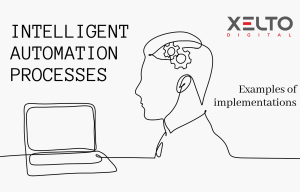Searching the foreign databases of contractors.
Withholding tax is a kind of CIT tax which is applied to cross-border transfers made from Poland. It is a form of income tax (applicable for legal persons and natural persons) collected by withholding agents on certain revenues (including, but not limited to, dividends, interest, royalties). CIT withholding tax is levied on a transaction when the recipient of a transfer (who becomes the taxable person) has a different tax residence than the sender of a transfer (who pays the tax). Poland has signed double tax treaties. According to these provisions, the Polish sender of a transfer for services provided by a foreign contractor paying withholding tax must know the tax data of the contractor whom the tax will be charged to.
In view of the new regulations, Polish tax payers who make cross-border payments of more than PLN 2 m (in a given year to a given payee) are obliged to collect withholding tax at the appropriate rate, i.e. 20% or 19%.
The collection of the tax can be avoided if the management of the Polish entity making the payment makes a statement that, among other things, it has verified with due diligence that the foreign entity receiving the payment is the beneficial owner of the payment and runs actual business activity. However, if this is the case, the liability for uncollected tax and risk in the event of a future dispute with the tax authorities is transferred to the management of the Polish withholding agent. The application of withholding tax (WHT) exemption will also be possible after obtaining an individual opinion from the tax authorities confirming the relevant status of the foreign recipient of payments made from Poland.
Due diligence involves checking and retrieving contractors’ tax data, such as tax identification numbers, business addresses, and residence addresses. For an employee of the company that pays withholding tax, this means hours spent on various foreign tax services, searching the databases of registered contractors, and retrieving their tax data. The more countries of origin for contractors, the more data there is to be checked; Europe, the United States or Japan – each area has its own tax reporting services, and it is a very time-consuming task to request data from these services. For a company purchasing multiple services that are subject to withholding tax, this means a lot of time spent preparing tax data.
In this case, automating the search process for contractor data is a huge benefit. Ed Robotowsky’s job is to relieve the employee of the company by taking over the process of checking and retrieving the data of contractors from different countries and tax areas.
The data to be processed in the automation process is a list of contractors and a list of countries and tax services for these countries, and the robot’s activity is to provide the employee with data divided into two groups: the data which can be obtained publicly and the data which are accessible after a certain amount is paid. The whole operation takes place, so to speak, in the background of the company’s activity. The robot operates smoothly and provides the necessary reports for analysis.
Then, all the employee has to do is to assess the relevance of the paid data and request the robot to download the one which they decide to pay for. In this way, the robot with a mechanism to make payments to the specific bank accounts of such services and receive the paid-up tax data continues to operate. The final report provides data that meets due diligence requirements for verifying a foreign contractor.
Source:https://www.podatki.gov.pl/wht/podatek-u-zrodla-wht/, https://www2.deloitte.com/pl/pl/pages/tax/topics/Podatek-u-zrodla-WHT.html






